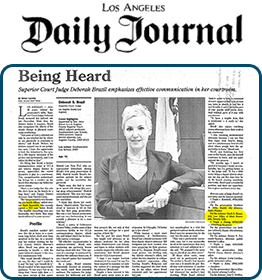There are situations in which someone is actually arrested for DUI when the police never actually see them driving, so they effect an in-home DUI arrest. Usually, this will happen when there was an accident and someone wrote down a license plate number and police tracked it to the home of the car and the owner, or they may follow someone home or get a tip from a civilian witness. In those cases, they may check to see if a car is in the garage, then knock on the door and pull someone out of their house for a DUI investigation, followed by an arrest.
Do Police Need a Warrant to Enter Your Home for an In-Home DUI Arrest?
The general rule is that the police need a warrant to enter a home, although there are certain exceptions they may try to use. Usually, however, they will try to get consent rather than spend the time or effort to contact a judge for a warrant. Police may knock on the door or ring the bell and when the person answers, they’ll ask them to come outside to talk to them and when they do, the officers are well on their way to conducting an investigation.
If they get admissions from the person that yes, they do have a car and that’s the make, model and license number and that they were driving it, they are well on their way to enough probable cause to make a lawful arrest. There are many defenses to these types of cases, but we want to avoid arrest and to avoid any contact with law enforcement if at all possible.
One thing to keep in mind if police knock on the door is that you don’t have to answer the door, you don’t have to open the door and you don’t have to talk to police officers. If they have enough information for a warrant, let them get a warrant and come back with it; all of this will take time and effort by the police and they may or may not go through it, but if you come down and you open the door and have a consensual encounter with police, you’re more likely to be arrested for DUI or any other crime than if you had chosen to leave the door shut.
It’s your house and you are the king of the castle while you are inside, and they should not come in without a warrant. There may be exigent circumstances, emergency situations, such as if there was a hot pursuit where police followed you to your house. In most cases dealing within a normal DUI context, the police investigation takes place a significant period of time later, and blood alcohol levels can change drastically over time; the longer the delay, such as if police have to get a warrant, the more difficult their case becomes.
People can take a shower or turn on the TV; they can sit down and have a beer in their own house; all of that makes it almost impossible for a prosecution to prove beyond a reasonable doubt what that person’s alcohol level was earlier when they were driving.
For more information on In-Home DUI Arrest, a free initial consultation is your next best step. Get the information and legal answers you’re seeking by calling (310) 424-3145 today.






 Personal Attention
Personal Attention Every criminal case is unique and no attorney can guarantee the outcome of a case. The information on this site is legal advertising and for general information only. Using this site, requesting books, information, consultations or communicating with Attorney Rosenfeld through its site does not form an attorney/client relationship.
Every criminal case is unique and no attorney can guarantee the outcome of a case. The information on this site is legal advertising and for general information only. Using this site, requesting books, information, consultations or communicating with Attorney Rosenfeld through its site does not form an attorney/client relationship.








